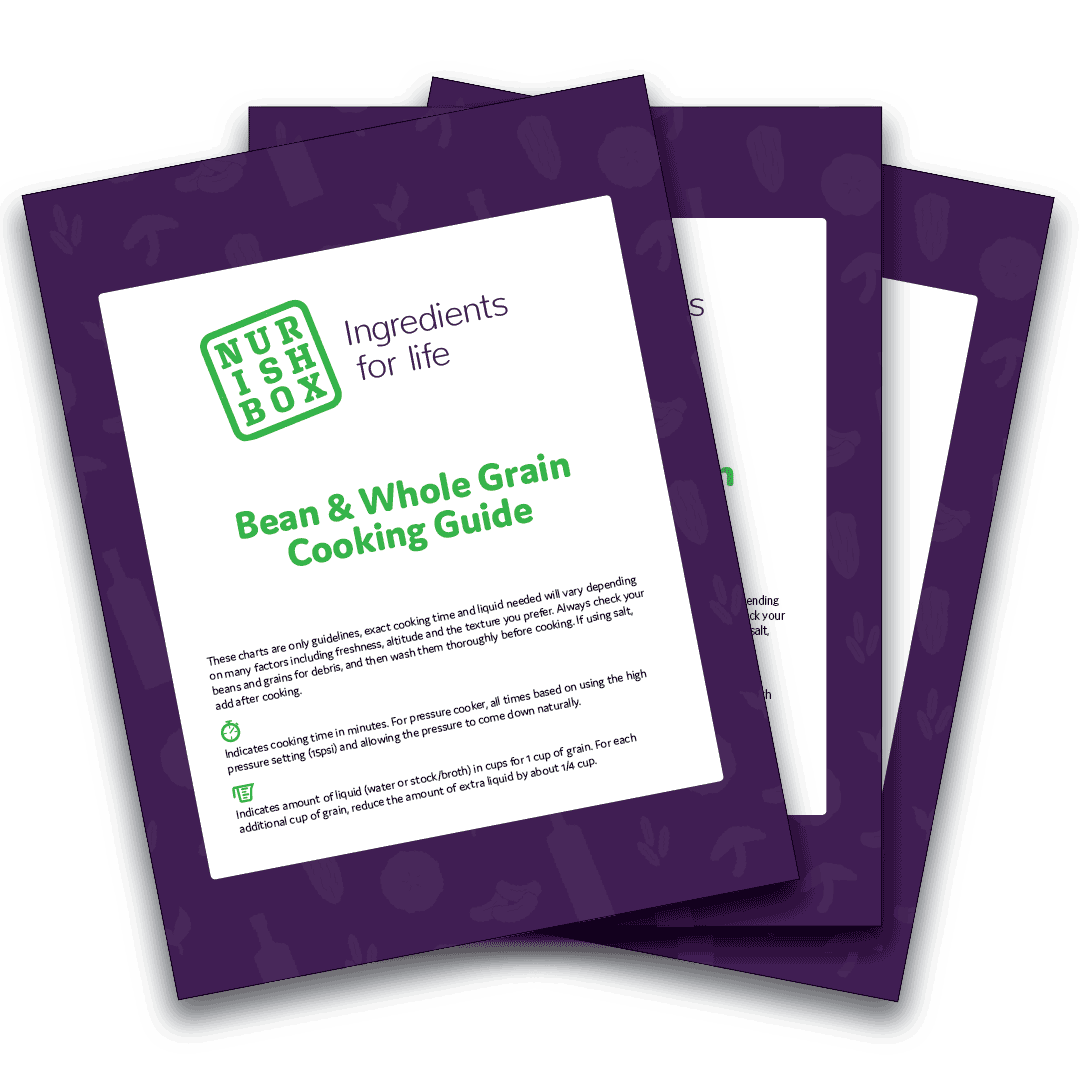Carbs get a bad rap, but that's because all "carbs" get lumped together, the good and the bad... And there are a LOT of bad carbs out there, refined flours and processed sugars are in so many processed foods it can be hard to avoid them.
But not all carbs are equal... "While whole grains, such as oats, whole wheat, and brown rice, have been shown to reduce our risk of developing chronic disease, refined grains may actually increase risk."*
"A 2015 analysis found that people who eat more whole grains tend to live significantly longer lives independent of other measured dietary and lifestyle factors."*
And eating them as intact as possible can make a big difference. Not only do fully intact whole grains cause a smaller blood sugar response, but they also digest slower — helping you feel fuller for longer. 👍
*Nutrition Facts: Whole Grains
How to cook whole grains on the stovetop
- Measure out the amount of grains you are starting with — most grains triple in size when cooked (1 cup dry ~ 3 cups cooked).
- Rinse your grains.
- Check the chart and measure out the amount of liquid (water or stock) you will need.
- Pour the liquid into your pot and bring to a boil. If using salt, don't add it now, wait until after cooking.
- Once liquid is boiling, pour in your grains, bring it back to a boil then turn the heat down to a simmer.
- Cover the pot and adjust heat as needed to maintain the simmer.
- At around the minimum time listed, check your grains to see if they are done to your liking . If they are not quite ready, add liquid if necessary, cover,and continue to cook until done.
| Grain | Approx Cooking Time in Minutes | Cups Liquid per Cup Grain |
|---|---|---|
| Amaranth | 20-25 | 2 |
| Barley, hulled (including purple)* | 70-100 | 3½ |
| Brown rice | 45-55 | 2½ |
| Buckwheat groats/Kasha | 15-20 | 2 |
| Farro* | 50-70 | 3 |
| Kamut* | 55-80 | 3 |
| Millet | 20-25 | 2½-3 |
| Oats, steel-cut | 10-20 | 3 |
| Oats, whole groats* | 40-50 | 3 |
| Quinoa, any color | 15-20 | 1¾ |
| Rye berries* | 70-90 | 3-4 |
| Spelt* | 65-80 | 3 |
| Teff | 10-20 | 3-3½ |
| Wheat berries* | 60-90 | 3-4 |
| Wild rice | 40-60 | 3-4 |
These charts are only guidelines, exact cooking time and liquid needed will vary depending on many factors including freshness, altitude and the texture you prefer. All times are for unsoaked grains. Grains marked with * may cook better if soaked. If soaked, cooking times are approximate 25-30 mins less.
How to cook whole grains in a pressure cooker
- Measure out the amount of grains you are starting with — most grains triple in size when cooked (1 cup dry ~ 3 cups cooked).
- Rinse your grains.
- Check the chart and measure out the amount of liquid (water or stock) you will need.
- Pour the liquid and grains into the pressure cooker (don’t fill more than halfway). If using salt, don't add it now, wait until after cooking.
- Close the lid securely and start with the minimum time in the chart.
- After completing the set time, allow the pressure to come down naturally and check if they are cooked to your liking. If they're not quite ready, add liquid if necessary, close the lid and set for an additional time depending on how far they are from being done.
| Grain | Approx Time at High Pressure in Minutes | Cups Liquid per Cup Grain |
|---|---|---|
| Amaranth | 3-5 | 2 |
| Barley, hulled (including purple)* | 35-45 | 3 |
| Brown rice | 20-22 | 1-1½ |
| Buckwheat groats/Kasha | 2-4 | 1¾ |
| Farro* | 20-25 | 2 |
| Kamut* | 12-20 | 2 |
| Millet | 8-12 | 1¾ |
| Oats, steel-cut | 3-5 | 3 |
| Oats, whole groats* | 25-30 | 2-2½ |
| Quinoa, any color | 1-2 | 1¼ |
| Rye berries* | 30-35 | 2-3 |
| Spelt* | 30-35 | 1½ |
| Teff | 2-4 | 2 |
| Wheat berries* | 20-25 | 3 |
| Wild rice | 20-25 | 2-3 |
These charts are only guidelines, exact cooking time and liquid needed will vary depending on many factors including freshness, altitude and the texture you prefer. All times are for unsoaked grains. Grains marked with * may cook better if soaked. If soaked, cooking times are approximate 10 mins less.

